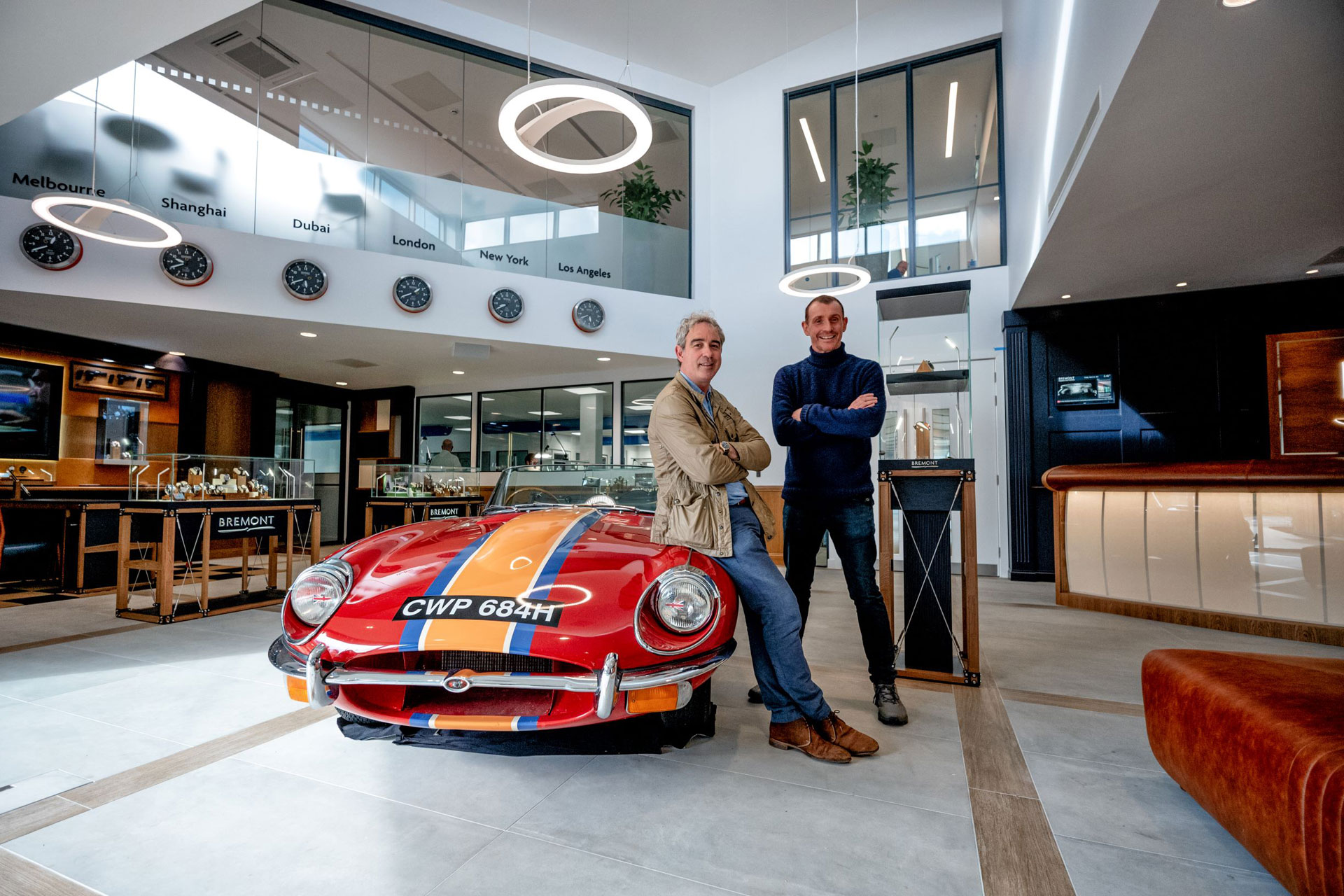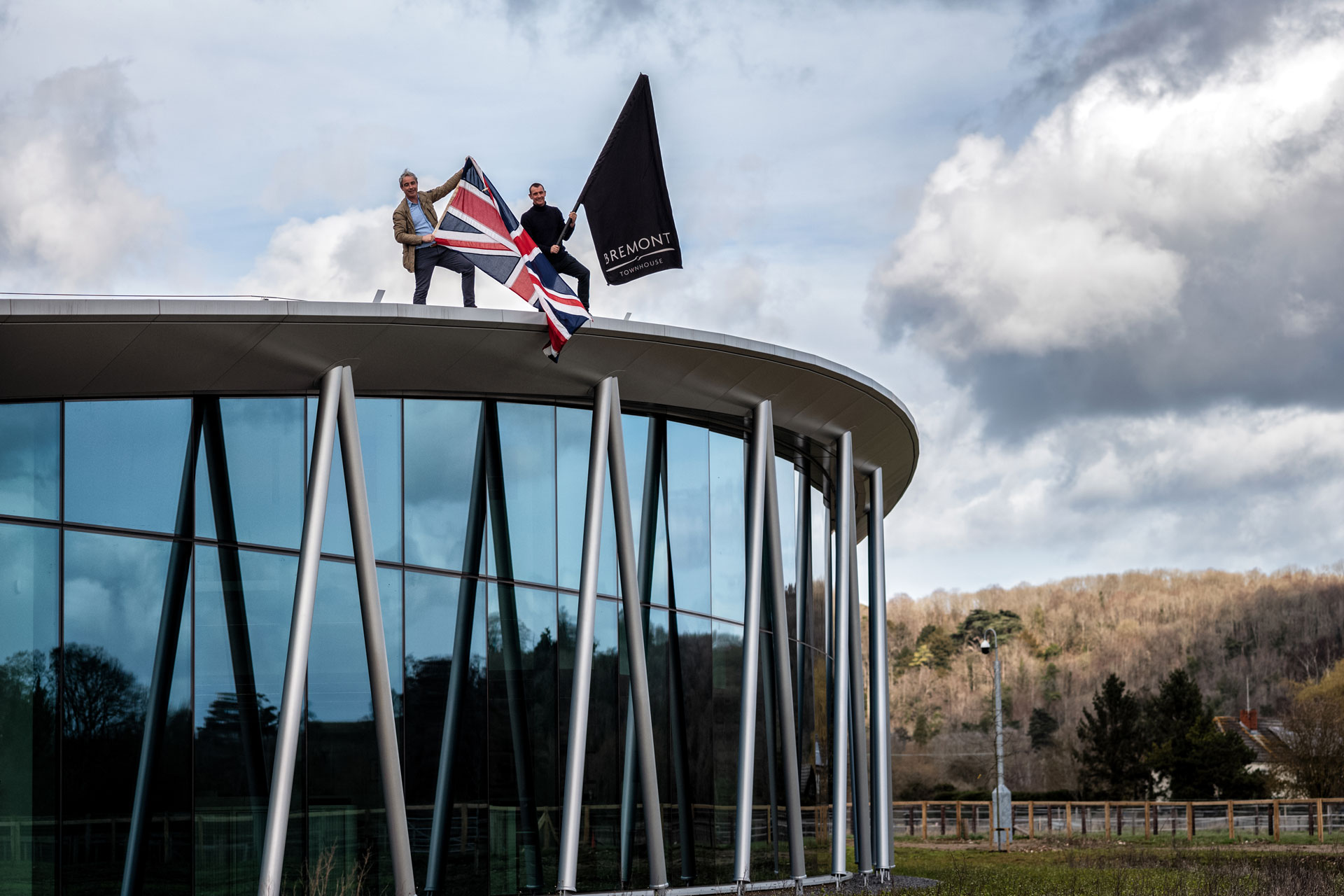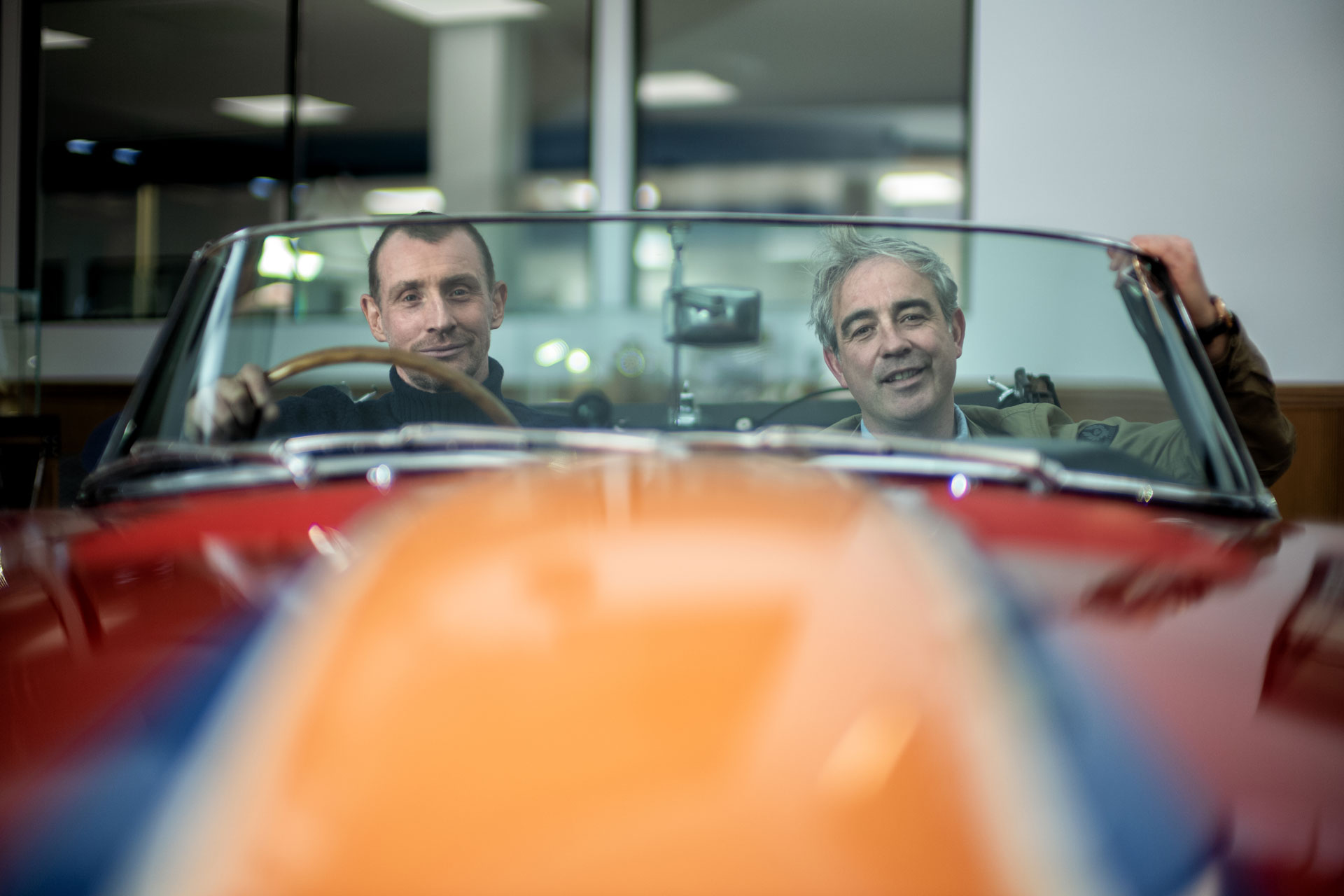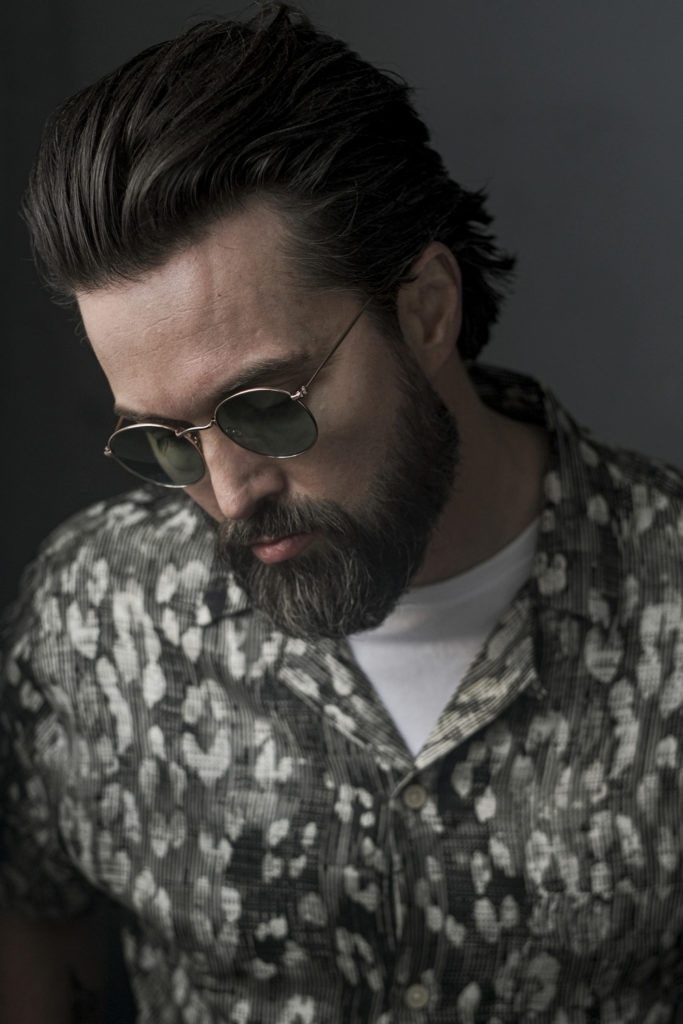Birth a Brand: the Bremont story
By
4 years ago
Nick English on the creation of Bremont

Michael Hayman, presenter of the Change Makers podcast, talks to Nick English about the extraordinary origins of his watch brand Bremont – and why he wants to cram in as much as possible
‘If you don’t try, you will never know.’ These are the words of the co-founder of Bremont Watches, Nick English. Nick’s story is far from ordinary, including a childhood where a normal weekend was borrowing his father’s 1940s aircraft and taking a trip to Europe. But a tragic plane crash would cost his father his life and leave Nick badly injured. Yet in the passing of time, from tragedy would come triumph. And the first step of that would lead Nick and his brother Giles to conclude that life is just too short to not follow your passion. That passion was to see the creation of Bremont, the aviation themed watch brand, and to lead to a tip for life, ‘Be half full’. They are the best folk to be around.
For the full interview, listen to the Change Makers podcast here

Michael: Let’s talk about that quote that, ‘If you don’t try, you will never know’. That seems to me that you’re one of life’s triers, that you actually do make the effort to give it a go.
Nick English: Yes, you have something that changes in your life, and something has a big impact, and suddenly it does change your focus and you really do feel that life is not around for a long, long time. You have one life, and you really have to go out and make the most of it. My brother Giles and I both have the same kind of philosophy.
Michael Hayman: Obviously you are in the business of time with watches. But time as a theme in your own life seems to be so important. And I was reading an interview where you borrowed the words of Louis Armstrong, ‘So little time and so much to do,’ being the most challenging aspect of running your business. Do you think that relationship with time, and the time we have as people on the planet, is a really big part of your story?
Nick English: I do. I think in part it stemmed from, if you go back a couple of decades when we lost our father, when he 49 years old. And for us, that was very, very young. He seemed to have crammed an awful lot in, in those 49 years. I think Giles and I still wake up every day thinking, ‘What can we cram in today?’ You don’t leave it until tomorrow if you can do it today, because you just don’t know, do you? I think our attitudes did change a huge amount. And it’s very much dictated how our business strategy has gone. It’s had a huge impact on us.
Michael Hayman: Your father obviously was a huge influence on the life of you and Giles, as brothers. But also on a lot of the inspirations for the business as a former RAF pilot, as an aeronautical engineer. Tell us a little bit about what it was like growing up with such a commanding figure as a parent.
Nick English: He was an incredibly creative, very thoughtful, very intelligent guy. He went to Cambridge, did aeronautical engineering there as well as a PhD. But he was this unique combination of being very cerebral, but also incredibly able with his hands. And because of that, his idea of downtime, of decompression, was going into the workshop and building things. That included restoring cars, motorbikes and aircraft. Clocks too. And our mother dumping us in the workshop with him was sort of a form of cheap childcare. We grew to love it and spend a huge amount of time there.

Michael Hayman: Was it pocket watches you were working on?
Nick English: No, we did tinker with those. But obviously, for kids, that’s actually quite tricky. You have to have a bit of the right equipment. It was easier going along to a car boot sale and our mother would find an old carriage clock, or a grandfather clock, and see if we could make it work again. That’s actually how my father paid for a lot of his way through university. So that’s how it started, this love of clocks, but also this conversation about how important time was for the UK, on British shores. This incredible history of British watchmaking, which was so incredibly important for us as a family.
Michael Hayman: And was the very tragic and sad death of your father in 1995, in an airplane crash with you, where you broke 30 plus bones in your body, really the moment that Bremont was born, in terms of actually the catalyst to go and do something different?
Nick English: It was. It happened during an air show practice. I was with my father. I hadn’t flown with him for a long time, and we took off from North Weald, an old wartime airfield. And something went wrong with the aircraft that day. My brother was waiting to take off in the other airplane. We lost our father, which was horrific, and I ended up in intensive care for quite a long time. Suddenly everything we looked forward to had been taken away.
After my father’s death, Giles and I, for our sins, went into the City. But one day I suddenly felt, ‘My gosh, time is ticking away’. By this time I was working for a small boutique, corporate finance outfit. I rang up my brother and I said, “Giles, I can’t do this anymore. I think I might just get involved in this business restoring historic aircraft.’ This was what our father had had as a sort of hobby, but it was getting a bit out of control. I got a call back from Giles half an hour later and he said, ‘Nick, I’ve done it. I’ve quit my job.’ And we both very naively went off and got stuck into this new business, which was interesting.
Michael Hayman: You obviously started from a position of getting on. A lot of siblings could never make it work by doing something as intense as a startup, then a scale-up, then a global brand. In terms of how the relationship works, how would you characterise yourself as two brothers in terms of how, I guess, that chemistry, that relationship, has become so successful?
Nick English: When you’re running a business like Bremont, it’s actually quite complex. You’re an engineering company, you’re a manufacturing company, you’re a retailer, you’re a wholesaler, but also you’re a marketing company. And what you realise, especially when you’re growing your business, you have to actually dabble in all areas.
Michael Hayman: Even the name has a great story behind it. Let’s start there in terms of introducing Bremont the brand and Bremont the timepieces.
Nick English: British watchmaking had all but died out a hundred and something years ago. Prior to that we had 50% of the world’s clocks and watches 100 years ago came from British shores. And then we had two World Wars. And if you could build a movement part for a watch, you could probably build a firing pin for an Enfield rifle. And it’s all about the war effort.
The Swiss though remained remarkably independent throughout the whole thing, and took the sort of Henry Ford model to watch making where it was about producing quality items, but in numbers. And we had a very old mentality in this country whereby we can make beautiful things. And it’s seen as almost semi-vulgar to produce a luxury item in numbers. But it can be done. And what Bremont is very much about, its whole DNA is about bringing this watchmaking back. So you’re producing something beautifully engineered, but in numbers.
Michael Hayman: Right. But we’ll get on to what do the Swiss and German companies think of you in a moment. But let’s go back to a farmer’s field. This is where the brand was born, wasn’t it? In France.
Nick English: It was. My point was we didn’t want to buy a brand. So when we set up Bremont, the first five years we didn’t have a watch brand. It didn’t have a name, and it wasn’t important to us, because it was all about getting the watch right. But then it got to a stage when I said, ‘Right, Giles, we’ve really got to come up with a name for this brand.’ And our surname is English. So having a British watch named after you, hard to trademark, and the irony has been lost on many.
It actually came down to a trip two years after my accident with my father. My brother got me back in the airplane quite quickly and we were doing another trip down through France, much to my mother’s dismay. And we had a, I’d say, precautionary landing in a farmer’s field in France.
We took off with far too little fuel. That’s not true. We took off with the right amount of fuel, but we couldn’t find where we were going. And we ended up landing in this farmer’s fields. And if you do that in UK or America, you apologise to farmer and buy him a bottle of whiskey, and take his wife for a flight. But in France, it’s very bureaucratic, and it’s illegal. So you land there and the whole airplane gets impounded. And we knew this at the time when we landed, but we just thought, actually, it’s better to be alive.
And we landed it was pissing with rain, which is sort of indication of why we shouldn’t have been flying in the first place. This farmer came out and we thought, “Oh my gosh, this is going to be hard work.” Giles, in the meantime, was hitchhiking to get some fuel with a rather good looking French girl. And I was sort of left confronting this farmer. And I thought, “This is going to be tricky.” And he just said, “Look, put your airplane in my hangar,” well it was a barn, “until the weather clears, and come and have a cup of tea.” So we did that, pushed it in, and we ended up staying with him for two or three nights. And had our father lived for another 30 years, he would have been very much like this guy. This guy had a workshop. He was tinkering the whole time. He used to fly himself. And we stayed in touch until his death. I mean, he’s 78 years old at the time.
Michael Hayman: And what was his name?
Nick English: Antoine Bremont.
Change Makers is brought to you by the campaigns from Seven Hills, and presented by Michael Hayman. Pure Being is the name of our soundtrack, and it’s written and performed by the brilliant Beatie Wolfe. To find out more, head over to changemakers.works
READ MORE:
Sadiq Khan on the Future of London



